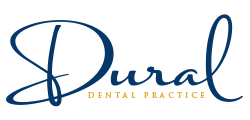- Dental Services
- TMJ & Sleep Disorder
TMJ & Sleep Disorders
There’s nothing worse than waking up in pain. Sleep should leave you refreshed, rested and ready to tackle the day. However, if you’re living with a condition such as Temporomandibular Joint Disorder (TMD), this can be hard to achieve.
Temporomandibular Joint -TMJ
Your temporomandibular joint is a hinge that connects your lower jaw to the temporal bones of your skull, which are in front of each ear. It allows you to move your jaw up and down and side to side, so you can talk, chew, and yawn. Problems with these movements, pain the muscles and clicks in the jaw joint may be a result of issues with the chewing muscles and joint surfaces that connect your lower jaw to your skull or your bite. TMD can be caused by a number of things including clenching your jaw or grinding your teeth which puts pressure on the joint, misaligned teeth, arthritis, sleep apnoea, airway issues, stress to name a few.
The symptoms of TMD are varied and not everyone displays the same ones. Some of the most common are as follows:
- Pain or tenderness in your face, jaw joint area, neck and shoulders, and in or around the ear when you chew, speak, or open your mouth wide.
- Clicking, popping, or grating sounds in the jaw joint when you open or close your mouth or chew. This may or may not be painful.
- A tired feeling in your face.
- Trouble chewing or a sudden uncomfortable bite — as if the upper and lower teeth are not fitting together properly.
- Enlarged muscles on the sides of the face
- Sensitive teeth
- Headaches
Sleep Apnoea
If you are suffering from TMD, there is a chance you may also be experiencing Sleep Apnoea simultaneously. Sleep Apnoea is a potentially dangerous condition that can cause shallow breaths, or even temporary pauses in breathing while you sleep due to a blockage in the airway. These pauses may last from a few seconds up to a few minutes, and can occur 30 times or more in an hour. After one of these pauses, normal breathing typically resumes with a loud snort or choking sound.
Recent studies have shown that when the throat begins to relax before an apnea episode, the jaw will reflexively clamp down to prevent the airway from being blocked. This places excessive stress on the jaw, mouth, neck and shoulders, and may cause TMD. Management of the sleep apnoea can also help resolve teeth grinding.
How can tooth wear be prevented?
Putting a stop to the triggers of tooth wear early is the most effective preventative method. This includes reducing exposure to acidic foods and drinks, addressing health concerns and medical conditions, and developing excellent oral hygiene practices. In some cases, your dentist may advise you to wear occlusal splint if you are grinding your teeth at night due to anxiety and stress.
Splint Treatment
A dental splint is an appliance used to protect teeth and their supporting structures from damage caused by grinding or clenching, otherwise known as bruxism. Dental splints reduce the forces on the teeth generated by bruxism, ease muscle tension and stabilise the jaw. Splints however, do not cure bruxism, but instead take the strain off the teeth and jaw. Patients may continue to clench and grind their teeth at night.
Book an assessment with us
During your assessment, we can take a closer look and identify where the issue lies. Lifestyle changes, such as losing weight and quitting smoking, can help, as can treating nasal allergies/blockages. We work closely with Sleep Physicians, Ear Nose and Throat specialists and Nutritionists to offer bespoke treatment plans that can include mouth splints, physical therapy, and in certain cases, surgery.
Book online if you have been experiencing any of the above symptoms.
Recent Articles
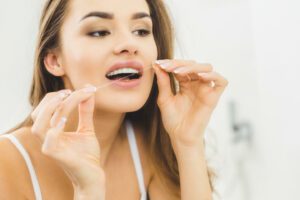
Dental Misconceptions: You Don’t Need to Floss
The Importance of Flossing Flossing plays a vital role in oral hygiene by removing plaque and food particles from between the teeth and along the
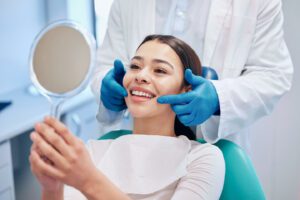
Common Dental Myths
Myth: Sugar is the primary cause of cavities While it is true that consuming large amounts of sugar can contribute to tooth decay, it is
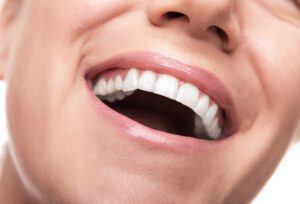
Same Day Crowns And The Benefits
Same day crowns have revolutionised the way dental crowns are placed, making the process quicker and more convenient for patients. Traditionally, getting a dental crown
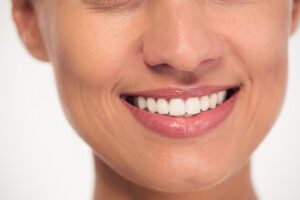
What Causes Teeth to Move?
Teeth movement is a natural process that happens for various reasons, such as growth, aging, and even dental procedures. One common occurrence is when a
Book An Appointment
Contact us to make an appointment at Dural Dental Practice
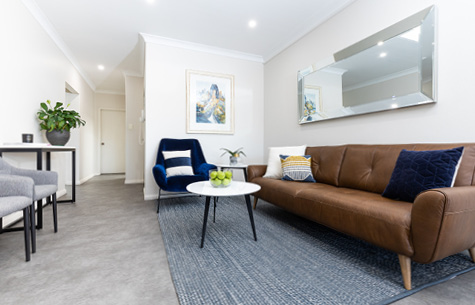
Dural Dental Practice
Suite 1, 644 Old Northern Road,
Dural, NSW 2158
Ph: (02) 9651-2085
